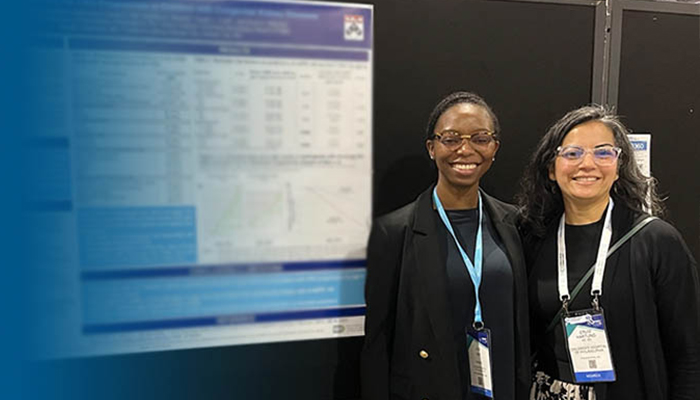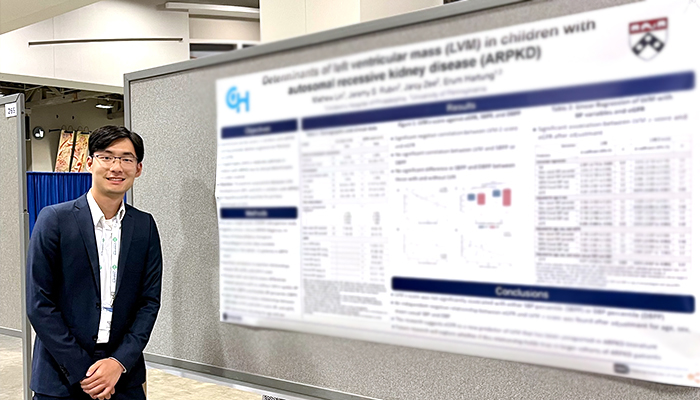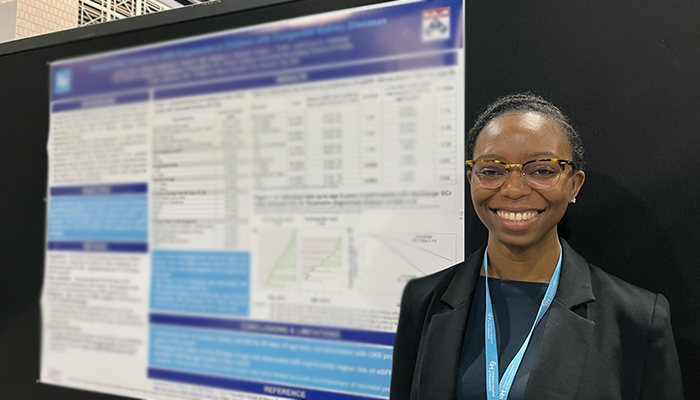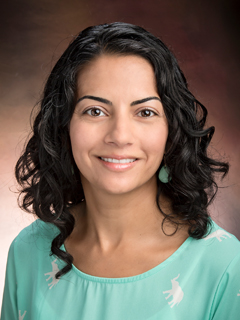HOW CAN WE HELP YOU? Call 1-800-TRY-CHOP
In This Section
CHOP PCEN Summer Scholars Program Seeks to ‘Demystify’ Pediatric Nephrology

The PCEN Summer Scholars Program aims to inspire future leaders in pediatric kidney disease research.
Medical schools, hospitals, and laboratories can be challenging to navigate without a road map. That's why a major goal of the Summer Research Scholars Program that Erum Hartung, MD, leads at Children's Hospital of Philadelphia's Center of Excellence in Nephrology (PCEN) is to "demystify" the world of academic medicine for aspiring nephrologists.
"I remember being an undergraduate and then a medical student, there were so many things that were a complete mystery," said Dr. Hartung, co-director of CHOP's Kidney/Liver program and director of the PCEN Summer Scholars Program. "Many of us in medicine go through the academic process having some lingering sense of imposter syndrome along the way."
The PCEN Summer Scholars Program — which is open to undergraduate, postgraduate, and medical students — aims to inspire future leaders in pediatric kidney disease research. Students pair with a mentor to work on a research project for at least eight weeks. Applications for the 2024 summer program are now open.
In addition to completing research projects, trainees in the program also shadow nephrologists in the clinic, attend seminars to learn about careers in medicine, and take a course on epidemiology or data science.
Giving prospective clinicians exposure to nephrology is particularly important for the field, which is facing a workforce shortage. Although the population of Americans with kidney disease is growing, interest in nephrology as a career is declining among U.S. medical school graduates, which threatens access and quality of care delivered to kidney disease patients.
"One issue is that learning about the kidneys makes it seem really intimidating," Dr. Hartung said. "Often students don't really get to experience what the practice of nephrology is like until much later in their academic careers, or sometimes not at all. That's why it was really important for us to incorporate the shadowing infrastructure into our program so students could see what it's like to be a nephrologist from day to day."
Gaining New Perspectives

Mathew Lin, now a research technician at Dana-Farber Cancer Institute, presented his Summer Scholars research project at the Pediatric Academic Societies (PAS) 2023 Meeting in Washington, D.C.
For Mathew Lin, watching his younger brother live with kidney disease sparked an interest in pediatric nephrology at an early age.
He applied for the PCEN Summer Scholars Program while he was an undergraduate at Cornell University in 2021, and he returned to the program for a second summer in 2022.
"I had never been around so many doctors and nurses," Lin said. "Shadowing them gave me a lot of clarity into ‘why' medicine and that this is a path I want to pursue."
The program also made Lin realize that he would enjoy a career as a physician-scientist. Paired with Dr. Hartung as his mentor, Lin's project focused on identifying the association between kidney and cardiovascular dysfunction in children with autosomal recessive polycystic kidney disease (ARPKD), a rare genetic disorder that affects 1 in 20,000 children.
His research abstract was accepted at the Pediatric Academic Societies (PAS) 2023 Meeting, which he had the chance to attend in Washington, D.C.
"Attending PAS really put into perspective how far the field is going," Lin said. "When you work in one lab, it's hard to appreciate how many people are working on the same problem — how broad the scale is. Talking to people at the conference was special to me."
Now, Lin is a research technician at Dana-Farber Cancer Institute in Boston while he applies to medical school. He stays in close contact with Dr. Hartung, as they prepare his research manuscript for publication and discuss future career plans.
Building a Support Network

Joya Sims, now a medical student at the University of Pennsylvania, says her summer research project under the mentorship of CHOP Chief Scientific Officer Susan Furth, MD, PhD, has been pivotal to her academic success.
Joya Sims, a 2020 and 2021 Summer Scholar, said that her relationship with her mentor from the program has been life changing.
Originally from Atlanta, Sims attended Spelman College and majored in mathematics. Research experiences in high school sparked an interest in medicine, and she connected with the PCEN Summer Scholars through the Penn Access Summer Scholar (PASS) Program.
PASS is pre-medical enrichment program that supports the recruitment of experientially diverse cohorts of students for the Perelman School of Medicine at the University of Pennsylvania. Students are selected from 10 partnering institutions, including five Historically Black Colleges and Universities (HBCUs). Once in the program, students work with a mentor on a research project for two consecutive summers and upon successful completion receive admittance to the Perelman School of Medicine.
Mentored by CHOP Chief Scientific Officer Susan Furth, MD, PhD, Sims chose a research project that investigated how interactions between physicians and the families of children with kidney disease may differ based on race, socioeconomic background, and ethnicity. To compare patient experiences, Sims looked at data from the Chronic Kidney Disease in Children (CKiD) Study, a multicenter, prospective cohort of children and adolescents that tracks kidney disease risk factors and progression.
Sims said she was inspired after the death of George Floyd, as well as from her own experiences navigating medical care as a Black woman, to choose a project that would highlight health disparities.
"It gave me the opportunity to be creative and intersect all of my interests together: math, science, and advocacy," Sims said.
During her first year of medical school at Penn, Sims reached a point where she thought she needed a break. Dr. Furth helped her to make the decision to step away and return the following year. During that break, Dr. Furth and Dr. Hartung offered her the opportunity to continue her research project as a research assistant, which helped make the transition from undergraduate to medical student a smoother one.
"Dr. Furth has been one of my role models," Sims said. "She is a supporter of me, and that's given me confidence — to know that somebody of her training, influence, and her character thinks so highly of me and the research I've been doing. I know I'll always have her in my corner, and I have the Summer Scholars program to thank for that."
